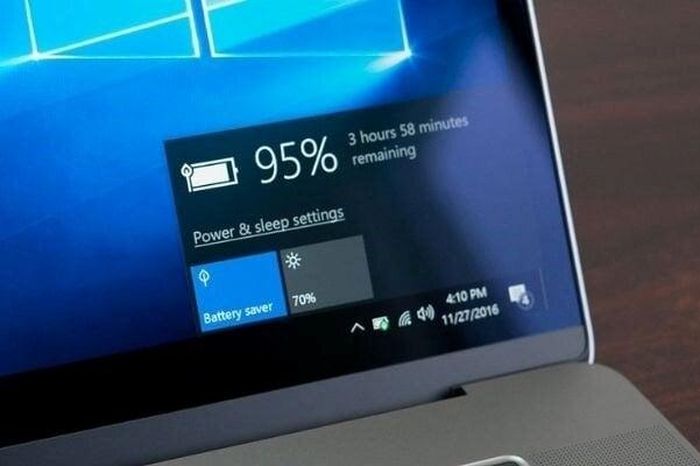Warning: New malware 'Mamont' impersonates Google Chrome to steal information
Security researchers recently discovered a new malware called 'Mamont', which can impersonate Google Chrome to trick information theft.
Mamont hides itself by impersonating the popular web browser Google Chrome to steal information such as users' passwords, text, photos, and contacts. Experts say that currently the malware only targets Russian speakers, but the threat actors behind 'Mamont' will quickly expand their targets.

Online fraud tactics with 'Mamont' malware are becoming increasingly sophisticated. Fraudsters often use rented or purchased bank accounts to make suspicious transactions and launder money. They post information on forums and social networks about renting/buying accounts or approaching low-income workers, students, etc. to open bank accounts for 500,000 to 1 million VND per account.
This malware has the same icon as Chrome, so it makes it easy for users to get confused and trapped.
To avoid becoming a victim of personal information theft and malicious code installation, people should be careful of unfamiliar links and not provide sensitive personal information such as citizen identification numbers or card numbers. credit card number, bank account number, OTP code. In addition, users absolutely do not download software that is not reputable or of unknown origin and should pay attention to the permissions that the application requires when installing.
You should read it
- What is Safe Malware? Why is it so dangerous?
- Can a VPN Fight Malware?
- What is Malware? What kind of attack is Malware?
- The 4 most common ways to spread malware today
- Learn about polymorphic malware and super polymorphism
- What is Goldoson Malware? How can you protect yourself?
- What is rooting malware? What can you do to protect yourself?
- Some simple tricks to deal with Malware
May be interested
- Google Chrome will warn users about password-protected malicious archive files
 google chrome is now warning when users are about to download risky password-protected archives, and providing improved warnings with more specific information about potentially downloaded files. toxic ability.
google chrome is now warning when users are about to download risky password-protected archives, and providing improved warnings with more specific information about potentially downloaded files. toxic ability. - What to do if Google Chrome warns an unsafe website?
 check the top left of the address bar, you will see the lock image. that means that site is safe to access. you often see these things on the internet.
check the top left of the address bar, you will see the lock image. that means that site is safe to access. you often see these things on the internet. - Detect new Android malware fake system update to track and steal user information
 the malware can disguise itself as a system update and is designed to automatically activate whenever new information is entered into a device.
the malware can disguise itself as a system update and is designed to automatically activate whenever new information is entered into a device. - Google updates Chrome to prevent Microsoft from mistaking it for malware
 google has released new versions to support chrome recovery after microsoft security essentials (mse) anti-malware software deleted this browser.
google has released new versions to support chrome recovery after microsoft security essentials (mse) anti-malware software deleted this browser. - Hacker attacks Chrome utility to install malware
 scammers recently hacked an extension on google chrome after capturing a chrome web store account of a group of german developers a9t9 and using it to send spam messages to users.
scammers recently hacked an extension on google chrome after capturing a chrome web store account of a group of german developers a9t9 and using it to send spam messages to users. - How to delete search browsing history in Google Chrome?
 most people spend a lot of their time online searching for information on google, sometimes searching for answers about personal issues that you might not want anyone else to see. however, all you search on google is saved and tracked by google. the information google collects from your account will be stored on the google history page, not on the browser.
most people spend a lot of their time online searching for information on google, sometimes searching for answers about personal issues that you might not want anyone else to see. however, all you search on google is saved and tracked by google. the information google collects from your account will be stored on the google history page, not on the browser. - How to Fix a Malware Infection on Your Computer
 viruses, malware, and spyware can wreak havoc on your computer; they can cause damage to your important files or even allow hackers to steal important information. worst of all, your computer can become unusable, requiring purchase of a...
viruses, malware, and spyware can wreak havoc on your computer; they can cause damage to your important files or even allow hackers to steal important information. worst of all, your computer can become unusable, requiring purchase of a... - Warning about fake Google Chrome on the rise: How to detect it?
 google chrome's fake alerts are becoming increasingly sophisticated, tricking users into running malicious scripts that compromise their systems.
google chrome's fake alerts are becoming increasingly sophisticated, tricking users into running malicious scripts that compromise their systems. - Detecting a new ransomware strain that specializes in stealing login information from the Chrome browser
 a ransomware strain called qilin was recently discovered using a relatively sophisticated tactic, with high customization capabilities, to steal account login information stored in the google chrome browser. .
a ransomware strain called qilin was recently discovered using a relatively sophisticated tactic, with high customization capabilities, to steal account login information stored in the google chrome browser. . - New malware discovered that can bypass Windows SmartScreen and steal user data
 international security researchers from the trend micro team have just issued an urgent warning about a previously unknown type of malware that is actively exploiting the windows defender smartscreen vulnerability cve-2023-36025. and compromise the target computer.
international security researchers from the trend micro team have just issued an urgent warning about a previously unknown type of malware that is actively exploiting the windows defender smartscreen vulnerability cve-2023-36025. and compromise the target computer.










 The 7 most powerful supercomputers today
The 7 most powerful supercomputers today YouTube switched to the AV1 codec, which helps increase video quality without consuming a lot of data
YouTube switched to the AV1 codec, which helps increase video quality without consuming a lot of data How to find the source of an image on Google
How to find the source of an image on Google Instructions for creating chat folders on Telegram
Instructions for creating chat folders on Telegram Microsoft cites three reasons not to use the iPerf3 tool on Windows
Microsoft cites three reasons not to use the iPerf3 tool on Windows How to check battery level on Windows 10 laptop
How to check battery level on Windows 10 laptop